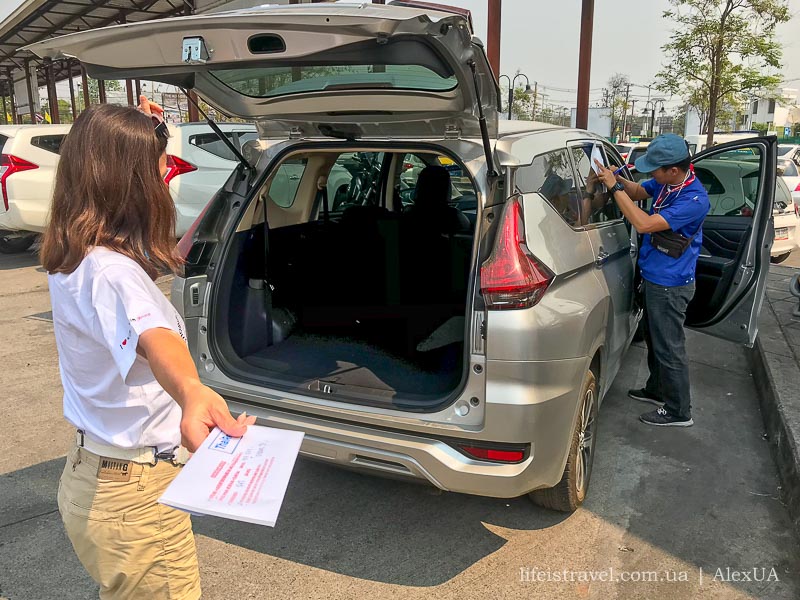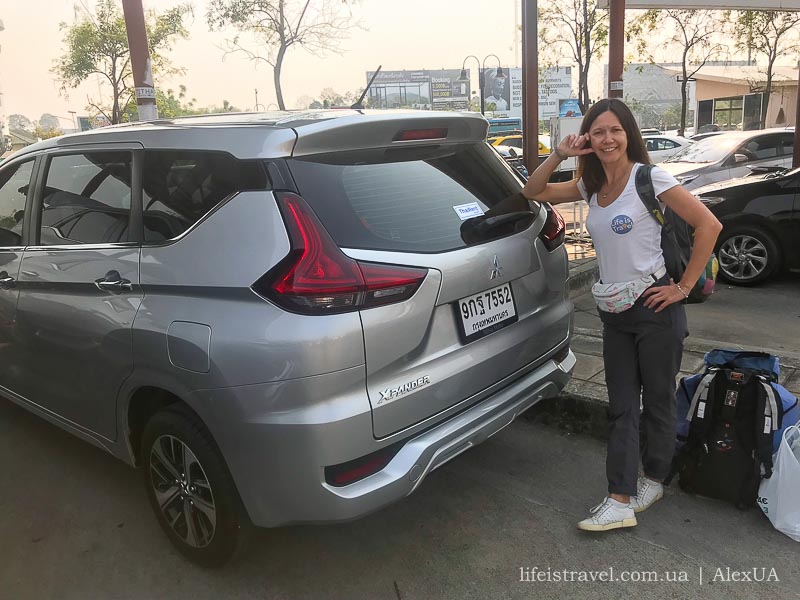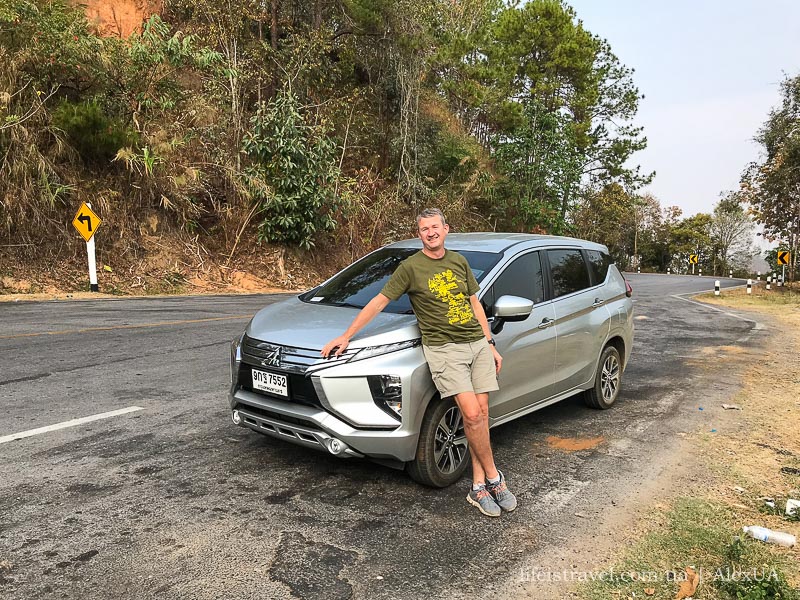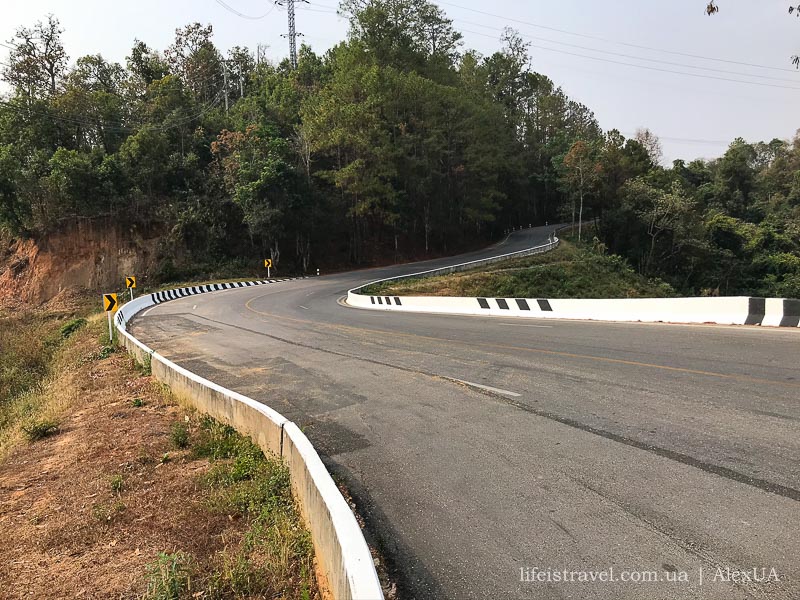Renting a car in Thailand, rental features, driving tips, and hacks.
Renting a car in Thailand is not much different from renting one in Europe. The main difference is that you need an International Driving Permit (IDP) to drive in Thailand.
You can obtain it from your local Motor Vehicle Registration Office (MVRO) for a minimal fee, usually within one or two days. It’s important to note that you need the IDP for driving, not for renting a car. You can rent a car with your regular driver’s license, but not having an IDP could lead to trouble with the police and hefty fines, especially in tourist areas.
So, it’s easier to get an IDP and avoid this issue.
What You Need for Car Rental in Thailand
For car rental in Thailand, you’ll need the same documents as in Europe:
- Your regular driver’s license
- Passport
How It Works
- Choose a rental company or a car rental search engine and select the desired car. I have been using the LocalRent website for a while and can recommend it. They offer various car options at different price points, and the cars are generally of good quality. I’ve used this website in Georgia, Cyprus, Montenegro, Greece, and Turkey. One key feature of the site is transparency in pricing and the ability to choose a specific car. You can even find options with no deposit, although deposits in Thailand are typically minimal.
- Once you’ve found a suitable car, check the rental conditions, which may vary slightly. I didn’t encounter any hidden fees or surprises during my rentals. The final rental price, deposit amount, and insurance conditions are clearly stated.
- When booking, you pay a small deposit, and the full payment is made on-site when you pick up the car.
- You’ll receive a car rental voucher by email, which you need to print or save on your phone.
- On the rental day, present the voucher along with your passport and driver’s license at the rental company’s office, typically at the airport, and collect the car keys.

Security Deposit for Car Rental in Thailand
The main difference from Europe is that the security deposit for renting a car in Thailand is significantly lower. Usually, it’s around 900-1000 baht per day, which is approximately $30. This means that if you rent a car for a week, they’ll block $210 on your credit card, and the funds will be released after returning the car. In my case, they unblocked the funds the day after returning the car.
Does the Rental Company Matter?
Yes, it does, not only in Asia but also elsewhere. That’s why I prefer LocalRent – they work with reliable companies, and I have extensive experience with them. Everything is straightforward, clear, and fast. We rented a car in Chiang Mai, at the airport, upon arrival, and returned it on the day of departure without any issues.
In Thailand, there are also many small rental agencies that operate independently and accept only cash. I’ve read various reviews about them, and their conditions are not significantly better, so I didn’t see the need to use their services.
Returning the Car
When you return the car, park it in the same spot where you picked it up. I recommend saving the location in your maps, such as Maps.me or Google Maps.
A rental company manager will inspect the car, make a note of the return, and check the fuel level, which should be full. According to the rental terms, we received the car with a full tank and returned it in the same condition. You can refuel the car to a full tank about 20-30 km before returning it. The fuel gauge will remain on “Full.”
After returning the car, go to the rental desk, which, in our case, was at Chiang Mai airport. Return the car keys and receive a receipt for the deposit refund.
The whole process takes less than 15 minutes, and there are usually no lines.

Is it expensive to Rent a Car in Thailand?
The price of our Mitsubishi was $25 per day. It was a nearly new car with just over 3000 kilometers. There were cheaper options available, but for trips lasting more than 2 days and through mountainous terrain, I usually opt for a slightly higher-priced car. I initially booked a Ford Focus, but we received a slightly larger car, which is a common practice when renting.
Insurance is included in the rental price. The cost of gasoline is approximately $1 per liter.
Driving in Thailand
We traveled in the northern part of Thailand, where traffic is very calm, and there are few cars on the road. The roads are hilly, especially the stretch between Mae Hong Son and Pai, with many curves, but nothing extraordinary. Driving is comfortable, and the average speed in the mountains is 40-50 km/h. You can’t go much faster due to the winding roads.

We rarely saw police, and no one stopped us. Parking is typically paid only in large cities. In Chiang Mai, we parked in the residential complex’s parking lot where we stayed, as well as in the hotel’s parking lot. National parks offer free parking.
The main feature in Thailand is left-hand traffic. It takes about 10 minutes to get used to it. Local drivers are generally more cautious than in some other countries. You need to be attentive in tourist areas like Phuket, where there’s heavy motorcycle traffic, but with care, you shouldn’t encounter any problems.

There are plenty of gas stations, even in the smallest towns. Our rule of thumb is to start looking for a gas station when the fuel gauge shows about half a tank.
The quality of the roads is good or excellent. There are no potholes, and even the narrow roads in villages and mountains are smooth. There are clear signs and markings everywhere.
Why Rent a Car in Thailand?
We have traveled several times in Thailand without any form of transportation or by renting a scooter. In Thailand, this is a common practice, as public transport is well developed. However, a car offers additional comfort and freedom.
Moreover, in regions like northern Thailand, a car is often more practical than a scooter because the distances can be quite long, making a car more suitable. If you rely solely on public transport, you may need to spend on guided tours or hire a car with a driver to reach many interesting places. This can be more expensive and time-consuming. Renting a car is ultimately more economical and time-efficient.
In conclusion, renting a car in Thailand is not as daunting as many people think. There are few differences compared to Europe, and it can be a cost-effective and convenient way to explore this beautiful country.Начало формы
Where to Book Hotels in Thailand
We use two search and booking systems – Booking.com.
Where to Buy Tickets for Public Transport in Thailand
For booking tickets for ferries, buses, trains, or minivans across Asia, 12GoAsia is the best website.
Where to Buy Airplane Tickets For international flights
We use Aviasales, while for domestic flights, we purchase tickets directly from airline websites, such as AirAsia.
Where to Purchase Travel Insurance
Travel insurance is crucial, as we experienced firsthand during our trip. We bought insurance from Hotline Finance, a trusted provider.